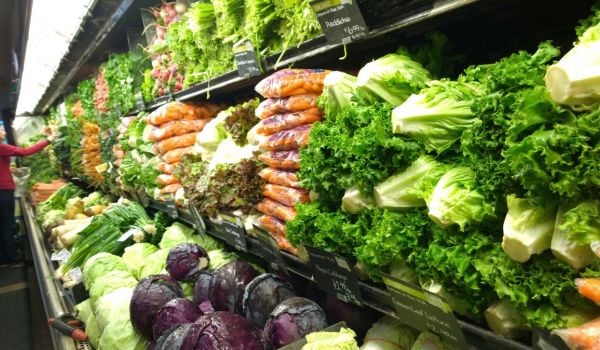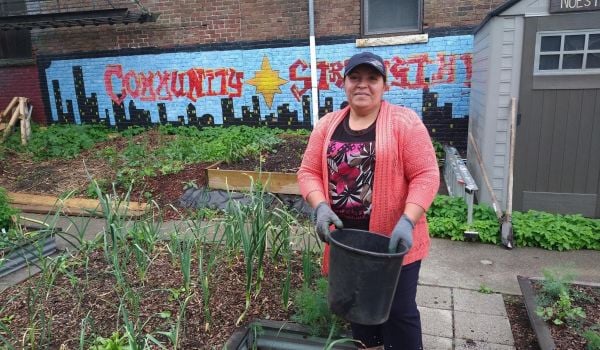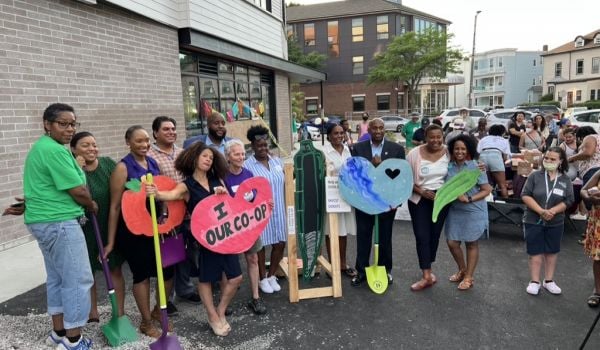Stroll down the intersection of Bowdown and Topliff Streets in Boston and you’ll see the shiny automated doors of the brand new Dorchester Food Co-op, where a few friendly faces are adding some finishing touches to the space before it opens to the public in the coming weeks.
The worker- and community-owned grocery store, which aims to increase access to nutritious and culturally relevant food, is a project over a decade in the making. As Next City reported during last year’s groundbreaking ceremony, the co-op is the result of more than 10 years of organizing around investors and gathering the funds to make a dream come true.
Its completion marks a milestone for the neighborhood – and the co-op community as a whole.
“The persistence has paid off,” says Penn Loh, a senior lecturer in urban and environmental policy at Boston’s Tufts University, who has researched Boston’s community food systems. “If people were looking at it just as a pure business with financial benefits, a lot of folks would have abandoned that project years ago. But because it was community rooted, people felt like it was really meeting their needs, and that it was important to the community overall. And so they kept at it.”
With food becoming more expensive and less variable at chain grocery stores, and general food insecurity further depleting the monetary resources of lower-income communities, Dorchester residents and community leaders started working towards the creation of a community and worker-owned grocery store that could draw from local vendors to stock its shelves, carry a diverse selection of food options, and create a direct line of profit from consumer to community.
Now, after a decade of market studies, collecting sponsors and small-dollar local investments, fine-tuning the co-op model and listening to residents’ voices, the store is almost ready to open its doors. The 6,000-square-foot food hub is located on the ground floor of a new mixed-use building, developed by the nonprofit VietAID, which also features 41 low-income apartments.
So far about 1,600 locals have joined the co-op, paying a one-time $100 membership fee to buy a share. (Would-be members can also request to have the co-op’s Solidarity Fund cover part of that cost or donate to cover another member’s fee.)
“There were commitments that the founders [of the Co-op] wanted us to do that were aligned with co-op principles, such as hiring from the community, purchasing locally and being sustainable in our business practices,” says John Santos, general manager of the new co-op.
Customers can bring empty containers to fill with beans, rice, laundry detergent, maple syrup and other household goods from the liquid refill and bulk food dispensers. At a fraction of the price at a chain grocery store, the refill dispensary provides an incentive for community residents to reduce their plastic waste. Several of the store’s furniture pieces were repurposed from an old science laboratory at Suffolk University undergoing renovations. The store’s refrigeration system is powered by carbon dioxide gas, a natural coolant, to avoid atmospheric damage in the event of leakage. The store’s vegan and cruelty-free section is positioned closer to the entrance, so that shoppers won’t have to walk through the meat area to access their food options.
In addition to a grocery cafe serving breakfast, lunch and dinner, the store also houses a section for community consignment, where business owners can bring in their products to sell to their fellow grocery shoppers, as well as a public library.
The project did not have easy access to local suppliers the way that suburban co-op programs typically do. Santos says co-op programs are much less common in cities because of the distance from local farms, and other vendors who could easily keep shelves stocked. This logistical challenge means urban co-op programs face roadblocks in getting the business up and running.
“Opening a co-op in an urban environment is incredibly challenging because you are introducing concepts like humanely treated animals or environmental concerns,” Santos says. “It’s not that residents don’t have those concerns — they may not be exposed to it, especially if the economic and educational resources aren’t there… The concept of us opening a co-op in an urban environment is very, very new.”
The Dorchester Food Co-op surmounted these challenges and won community support and resources necessary to create a food retail model that’s driven by the community’s dietary needs. It’s now the only food co-operative currently in the city.
The level of community and worker involvement in this program makes the project an innovative grocery model. Dorchester is known for its diverse population — including strong Vietnamese, Cape Verdean and Haitian diasporas – and the co-op’s food selections aim to suit locals’ needs. Everything from global ingredients, to vegan and vegetarian-friendly meal options, to additional dietary restrictions are provided by the Co-op.
More importantly, the co-op owners do not stock food items known to have harmful ingredients such as high fructose corn syrup, a staple in many nonperishables. The store aims to disrupt the pattern of poverty and malnutrition in lower-income neighborhoods by providing healthier yet affordable alternatives to everyday food items.
“I’ve had vendors come and say to me, ‘Do you think this will sell in Dorchester?’ Santos says. “Hell yeah, we think the community will buy this…they [just] haven’t been given the chance to see it…We have the ability to change the most diverse community in Massachusetts.”

Punnya Kalapurakkel is Next City's Summer 2023 Emma Bowen. She is a rising junior at Boston College, where she is pursuing a double major in communications and psychology.

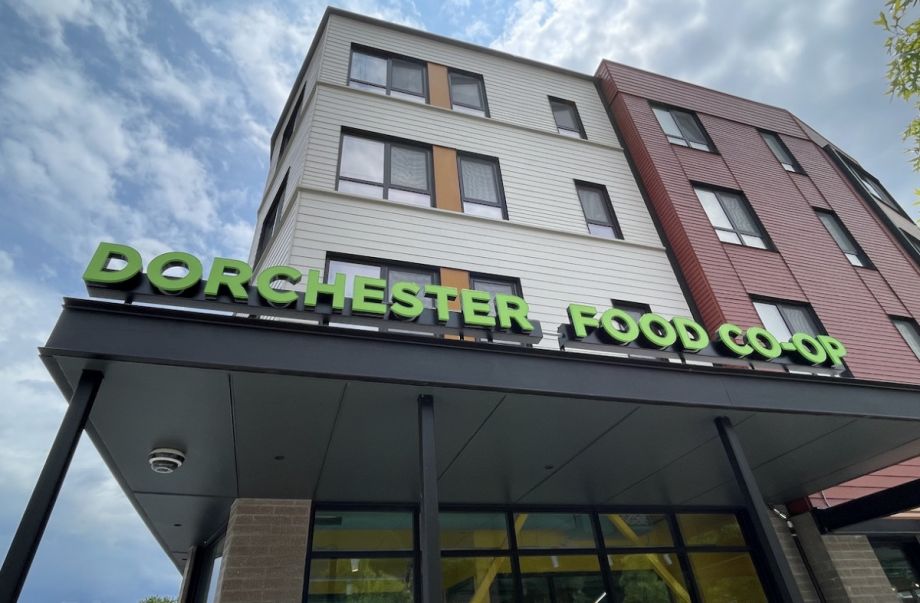
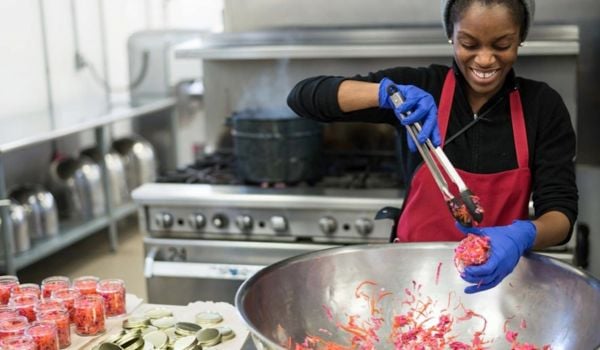
_600_350_80_s_c1.jpg)
